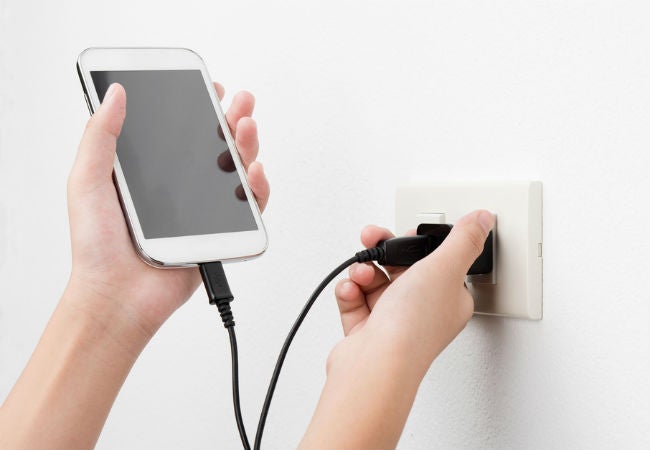Electricity is a crucial aspect of modern life, powering everything from homes to workplaces. However, it can be frustrating and dangerous when electrical problems occur. Flickering lights tripped breakers, and other electrical issues can be symptoms of a wide range of problems, from minor annoyances to serious safety hazards.
Diagnosing electrical problems is essential for anyone who wants to maintain a safe and functional electrical system. However, remember that it requires proper skills and is never recommended to be done by amateurs. If you are looking for professionals in the capital of the UK, you can simply search for electrical contractors London, or check some of the best options that you can find on this site. Here are the most important things about recognizing electrical issues on time.
Flickering Lights: Causes And Solutions

Flickering lights can be common but can also signify a more significant problem. A loose or faulty bulb is one of the most common causes of flickering lights. If you notice flickering lights, the first step is to ensure that all light bulbs are securely screwed into their fixtures. If the problem persists, it may be caused by a faulty switch or wiring issue. In some cases, flickering lights can also indicate an overloaded circuit or an electrical short.
To solve this issue, it is crucial to identify the underlying cause. If the problem is related to loose bulbs or switches, it can be fixed by tightening or replacing the faulty component. If the problem is related to wiring or circuit issues, it is essential to contact a licensed electrician to diagnose and repair it.
Why Circuit Breakers Trip And How To Fix Them?
Circuit breakers are designed to protect your electrical system from overload and short-circuiting. When the electrical load on a circuit exceeds its capacity, the circuit breaker trips, cutting off power to the circuit. A tripped circuit breaker can be caused by several factors, including overloading, short-circuiting, and ground faults.
If you experience a tripped circuit breaker, the first step is to turn off all electrical devices on the affected circuit. Then, locate the tripped breaker and reset it by turning it off and back on. If the breaker trips again immediately, it may be a sign of a more significant problem, and you should call a licensed electrician to diagnose and repair the issue. It’s essential to note that repeatedly resetting a tripped breaker can be dangerous and cause electrical fires, so it is important to identify and address the root cause of the problem.
What To Do When Outlets Are Not Working?

If an electrical outlet is not working, it can be frustrating and inconvenient. There are several reasons why an outlet may stop working, including a tripped circuit breaker, a blown fuse, or a faulty outlet. The first step is determining if the problem is isolated to one outlet or affects multiple outlets.
If the issue is isolated to one outlet, you can try resetting the circuit breaker or replacing the outlet. However, suppose the issue is affecting multiple outlets or circuits. In that case, it may be a sign of a more significant electrical problem, and you should contact a licensed electrician to diagnose and repair the issue. It’s essential to avoid attempting to repair electrical issues on your own, as it can be dangerous and lead to serious injury or property damage.
How To Detect And Troubleshoot Faulty Wiring?
Faulty wiring can be a serious safety hazard, leading to electrical shocks, fires, and property damage. Therefore, detecting and troubleshooting faulty wiring is crucial to prevent these dangers. Signs of faulty wiring can include burning odors, flickering lights, sparking outlets, and tripped breakers.
It is essential to turn off power to the affected circuit and visually inspect the wiring for any signs of damage, such as frayed wires or loose connections. If the wiring is in good condition, you can use a multimeter to test the wiring for continuity and voltage. If you are not comfortable working with electricity, it is essential to contact a licensed electrician to diagnose and repair the issue.
When To Call A Professional?
While some electrical issues can be fixed with basic troubleshooting, others require the expertise of a licensed electrician. It is crucial to know when to call an electrician for help to ensure your safety and the safety of your property.
You should call an electrician if you experience any of the following issues: frequently tripped breakers, flickering lights, buzzing or humming sounds, electrical shocks or burns, burning odors, and smoke or sparks from outlets or switches. Also, you should call an electrician if you plan on any electrical renovations or upgrades, as they can help ensure the work is done safely and up to code.
Power Surge Protection
Power surges can cause significant damage to your electrical devices and appliances, leading to costly repairs or replacements. Lightning strikes, power outages, and electrical grid fluctuations can cause a surge. You can use surge protectors to protect your home from power surges, which divert excess voltage away from your devices.
Not all surge protectors are created equal, and using them with adequate protection levels for your devices is essential. Surge protectors come in various forms, including power strips and whole-house surge protectors. Moreover, replacing surge protectors every few years is essential, as they can degrade over time.
Safety Tips
Electrical safety is essential to prevent electrical shocks, fires, and other hazards. Simple safety tips include:
- Not overloading circuits
- Avoiding the use of damaged or frayed cords
- Keeping electrical devices away from water sources
Also, it is essential to have a basic understanding of your electrical system and know how to reset tripped breakers and replace light bulbs safely. If you are unsure about any electrical work, it is best to contact a licensed electrician to ensure the work is done safely.
Last Words
Understanding and diagnosing electrical problems can be complex, but it is essential for the safety and functionality of your home. By familiarizing yourself with the common signs of electrical issues, you can ensure your electrical system works properly and safely. And remember, when in doubt, always consult a licensed electrician to ensure the work is done correctly.

